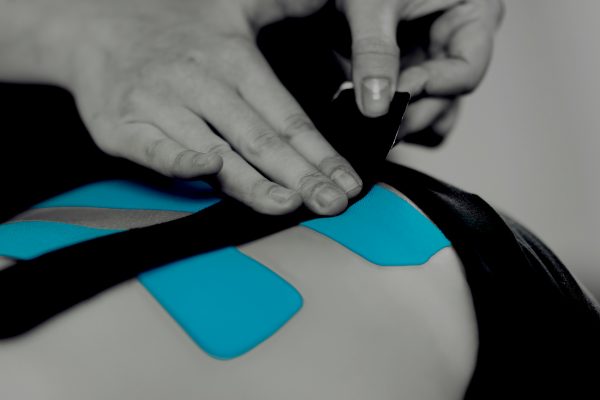What is a C.O.R.F.?
What is a C.O.R.F.?
CORF (Comprehensive Outpatient Rehabilitation Facility) is a Medicare program first established by Congressional mandate in 1981. Its purpose was to provide a facility offering a variety of therapy based diagnostic and restorative services in an outpatient setting under one roof. While second only to a traditional hospital in the ability to offer a multitude of services under a single Medicare provider number, the CORF program has increasingly become a viable option for clinic expansion. Recent estimates place the number of existent CORF facilities at under 600.
Current trends in therapy based treatment regimes and more intense focus on less expensive, alternative treatment offerings work to foster increased interest in this program. Cost savings resultant of outpatient treatment based services helps to reduce the pressure on federally funded health care programs such as Medicare.
What services & therapies may be offered?

CERTIFICATION OF THE FACILITY MANDATES 3 BASIC SERVICES BE OFFERED:
Medical services (provided by an MD or a DO)
Physical Therapy (PT)
One of either Social Services, or Psychological counseling.
Occupational Therapy (OT)
Speech Therapy (ST)
Respiratory Therapy (RT)
Nursing Services
DME (Durable Medical Equipment)
Drugs and Biologicals

All services and therapies offered must be provided by a doctor, clinician or therapist, licensed to practice in the state in which the facility operates. Services offered in addition to the three mandated services are determined by factors having to do with local need, demand, and availability. Any additional services offered are done so at the sole determination of the facility administration and are not mandated under the regulations of the program. A CORFs ability to offer to the local community this multitude of services (as may be needed) and bill Medicare Part A under a single provider number sets this program apart from all other single-service programs.
No other program lets the facility custom tailor the services provided to the needs of the community and submit billing under a single provider number.
Can the Facility Solicit and Treat non-Medicare Patients?
Yes. Until September 2001, the CORF program was one of the last of the cost-based accounting programs. Reimbursement for services provided was determined by a complex formula that factored all the costs associated with facility operation and service provision. The intent was to operate in a non-profit, break even manner that discouraged treatment of non-Medicare patients.
Beginning in October of 2001, Medicare instituted a physician fee schedule (PPS- Perspective Payer System) that allows the facility to operate on a for profit basis. This change has opened the doors to treatment of non-Medicare patients outside the regulations and restrictions of the Medicare funded program. Regulations mandate establishment and notification of CORF operational hours (determined by the facility administration) during which time Medicare patients ONLY are to be treated, and the program rules and regulations are to be strictly adhered to. Outside of those delineated hours however, the clinic becomes an outpatient treatment facility available to any and all that may seek treatment or avail themselves of the services offered. This one key difference from the previous reimbursement system has exponentially expanded the available patient base and facility potential. No longer are the facilities considered Medicare only. Program guidelines provide for allowance of a dual-use facility, meaning the CORF may be established and operated inside a clinic or office being used for provision of other medical disciplines (chiropractic is the most common). Current front office staff may be utilized as well as the patient waiting area and entrance. There is no need for hiring additional reception personnel or establishing a separate entrance or waiting area. CORF patient files and records must be kept separate in a locked file cabinet. No commingling of records is permitted. There should be a separate corporate structure (C corp.) established (seek the advice of your accountant) as well as separate bank accounts, phone number, and corporate mailing address (PO Box).
Who Actually Operates the CORF?
Day to day operation of the CORF is overseen by a facility administrator who is responsible for overall management, as well as implementation and enforcement of facility policy and procedure. The administrator bears responsibility for all staff and personnel providing facility services, and typically has a background in health care administration, including an appropriate degree as well as related clinical experience, such as nursing, PT, or OT. Actual medical procedures, treatment plans, and hands-on health care provision is overseen and supervised by the facility Medical Director. Facility operating days and hours are set by the administrator and may be changed as situations and demand warrants. There are no regulations concerning facility name, but names such as “Newark Rehabilitation Services” or “Outpatient Therapy Center of Brookville” works better than “Newark CORF.” You may know what CORF stands for, but very few other do.
Medical Director: An accredited MD or DO with a minimum of one year of training in the medical management of rehabilitation patients, and at least one additional year of full or part-time experience in a rehabilitation setting. Medicare conditions of participation require the physician to be on facility premises for the time needed to supervise and provide medical care, direction, consultation, and coordination of the requisite plan of treatment for referred patients. The director will assist in establishment of the facility patient care policies, and participate in patient review, assessment, treatment plan supervision, and facility utilization review activities. The Medical Directors employment relationship with the facility should be that of an independent outside service provider and not as an employee. Payment for services provided can be negotiated based on projected hours needed for file and paperwork review and oversight. CORF patients can only receive treatment based on an MDs written prescription for care. The Medical Director may perform an initial evaluative exam for the purpose of corroborating the validity of the prescription for care. A separate office area is required for the Medical Director so that evaluative and follow up exams can be performed in private. Co-Medical Director positions are allowed as well, giving a facility the ability to have the involvement of more than one qualified MD/DO as members of the facility review and advisory panel.
How Long Does it Take to Set Up?
As with the establishment of any business, medical or otherwise, a large number of factors enter into that determination. Establishment of an operational facility can be as quick as 3 months or as long as a year. An initial determination of possible state requirement of a Certificate of Need (CON) may render the decision to establish a facility in those states requiring such as not worth pursuing resultant of the time and expense involved. Conversion of an existent facility into a CORF may require build out or spatial re-orientation. The facility must comply with all federal, state, and local building, fire, and safety codes.
An in-house fire alarm system (meeting local fire codes) as well as adequate fire extinguishing and emergency lighting must be in place. Medicare program application paperwork must be requested from the State Health Department who is empowered to survey and oversee the facility on behalf of Medicare. Establishment of a billing relationship with the Medicare appointed FI (Fiscal Intermediary) requires minimal paperwork. The FI is responsible for billing review, oversight, and payment disbursement.
View CORF Center & Learn More
What Our Customers Say
“Sam, I signed my loan on Friday. Thank you so much for all of your help, time and input in making this dream of mine a reality!”
“Sam, thanks very much for all your help with the sale of my practice. Everything worked out very well. It was great to have interested buyers within two weeks of putting an ad out and finalizing the deal eight months out overall. Also, it was especially nice to sell the practice for the asking price!”
“Hi Sam!
Glad we finally got this deal done! I appreciate all your help and I know why you were highly recommended! I would certainly refer other docs to you. Thanks Again.”
“Sam, I read your practice on how to transition your clinic to the new owner and minimize the transition – WOW! It worked – It is unbelievable how easy it was to transition. Everyone is rescheduling. Thanks!”
“Oh Sam, thank you so much for everything. I can’t wait to spread the word to use Sam to sell your practice! He is truly a person who keeps his word and delivers fast! Thanks!”



